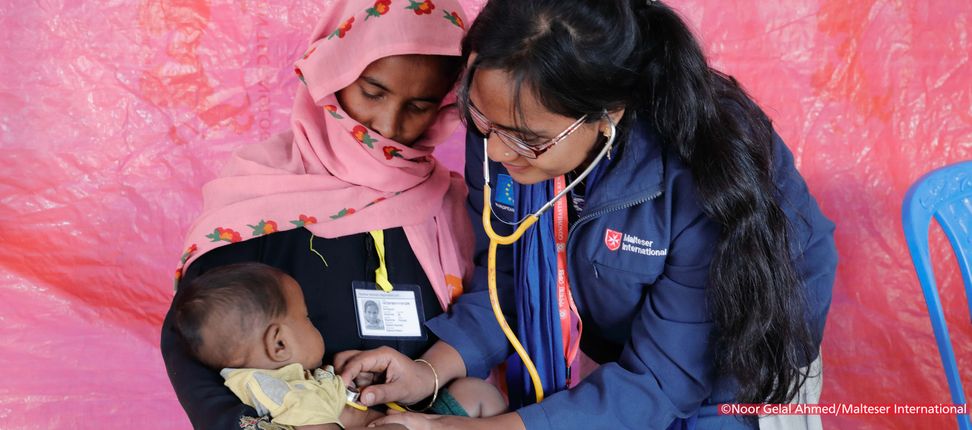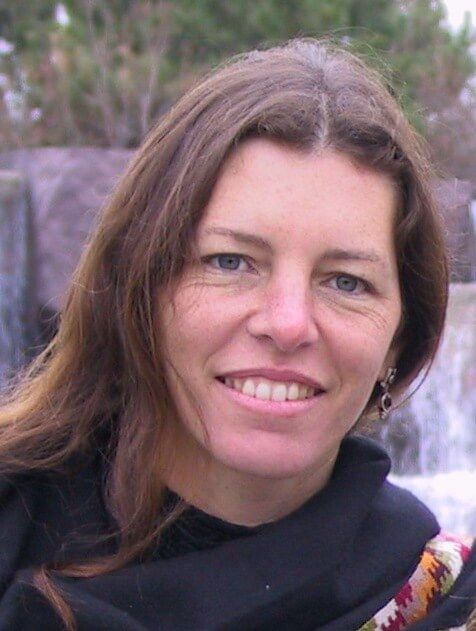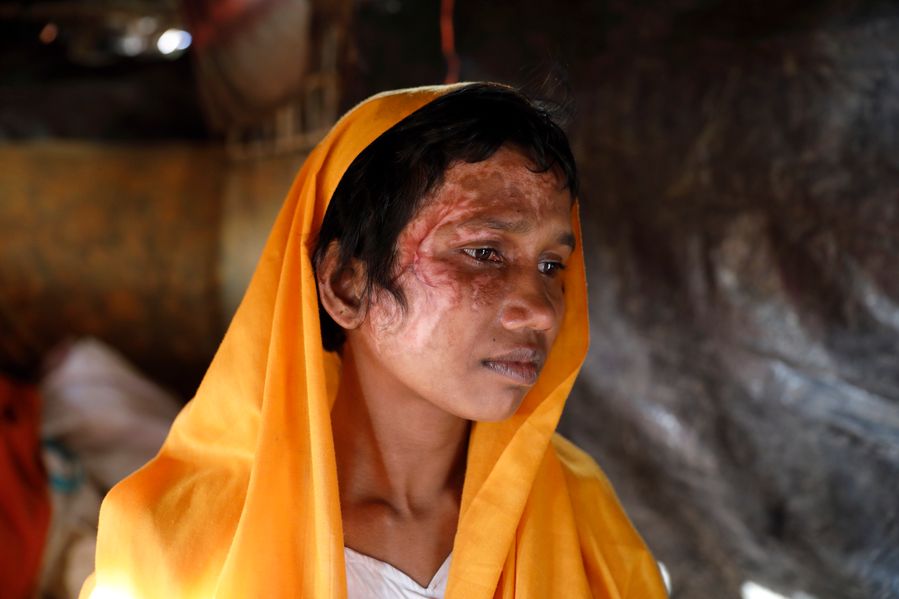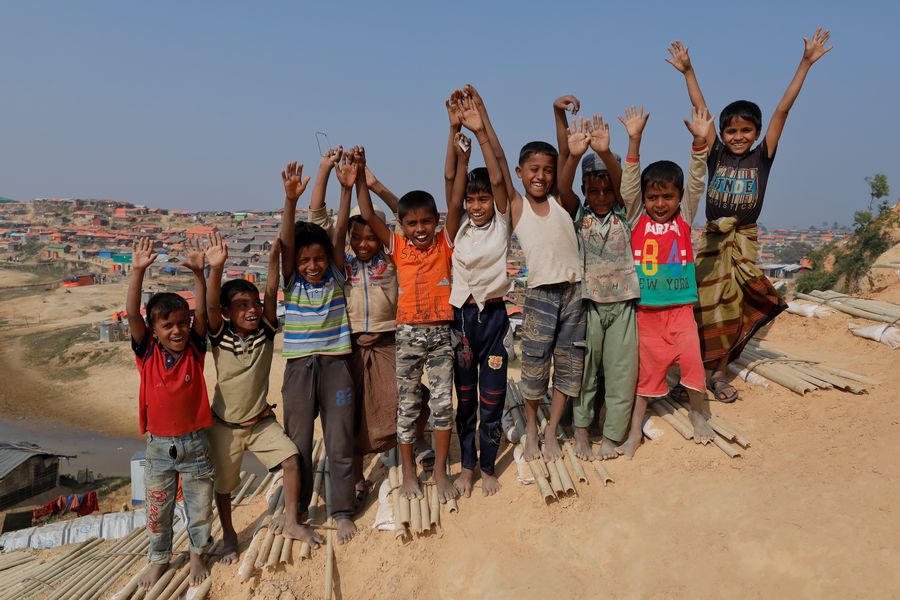
Reducing human suffering in Bangladesh
Interview with Yvonne Dunton

Since August 2017, more than 650,000 Myanmar nationals have arrived in the southern district of Cox’s Bazar, Bangladesh to escape violent conflict in their home country. The refugees have found shelter in makeshift settlements that have evolved into so-called Mega camps, but the pace and scale of the influx has added pressure on resources in the camp, making living conditions difficult - the camps are overcrowded, sanitation facilities are lacking, and there is very limited access to food and health services. Due to the high number of refugees arriving in such a short time, the situation in Bangladesh has spiraled into a humanitarian crisis.
In this interview, Malteser International’s Yvonne Dunton, 54, gives us an insight on what has been termed the world’s fastest-developing refugee emergency.
Ms. Dunton, Can you describe the current humanitarian situation for us?
Many of the refugees have suffered considerable loss and hardship before arriving in Bangladesh. Patients who come to our health centers tell us about their experiences. Some arrive with gunshot wounds and burns. I got to know Rajuma. She sustained serious burns all over her body, and was treated in our health facility. Her husband and four children were killed when her house was set on fire in an attack. She narrowly escaped with her 11-year-old daughter who also had serious injuries. Although her wounds are gradually healing, she remains traumatized by her experiences.


What are the urgent needs of the refugees?
Most refugees arrive with almost nothing, and thus are fully dependent on external support to cover even the most basic needs - shelter, food, cooking utensils, firewood, water and health care. Malnutrition in infants and young children needs to be tackled through supplementary feeding programs. The overcrowding and poor hygienic conditions need to be urgently addressed to avoid an epidemic outbreak.
Malteser International responded to the crisis in September by providing mobile clinics in camps. Can you tell us more about the intervention?
Malteser International is working with Gonoshasthaya Kendra, an experienced Bangladeshi non-governmental organization. With Malteser International's technical and financial support, Gonoshasthaya Kendra was able to rapidly set up and staff two health facilities inside the camp. The well-stocked clinics are running 7 days a week, and attending to over 100 patients everyday. The services are of course free of charge. Therapeutic feeding is also provided for undernourished children, pregnant women, and the elderly.

What are the challenges currently being faced by humanitarian organizations?
The serious overcrowding of the refugee camps is one of the greatest constraints for humanitarian organizations to set up adequate basic services. There is simply not enough space. Additionally, the western part of the “Mega Camp” is very difficult to access in order to provide services due to lack of roads. Due to the uncertainty of future developments and decisions of the Bangladeshi government, only short-term planning is currently possible.
What has been your personal experience of the situation?
Despite the troubling situation on the ground, it is a delight to see so much resilience and courage as the people get their lives back on track. Seeing them smile again, especially the children, gives me joy, and strengthens me in my work.
January 31, 2018








